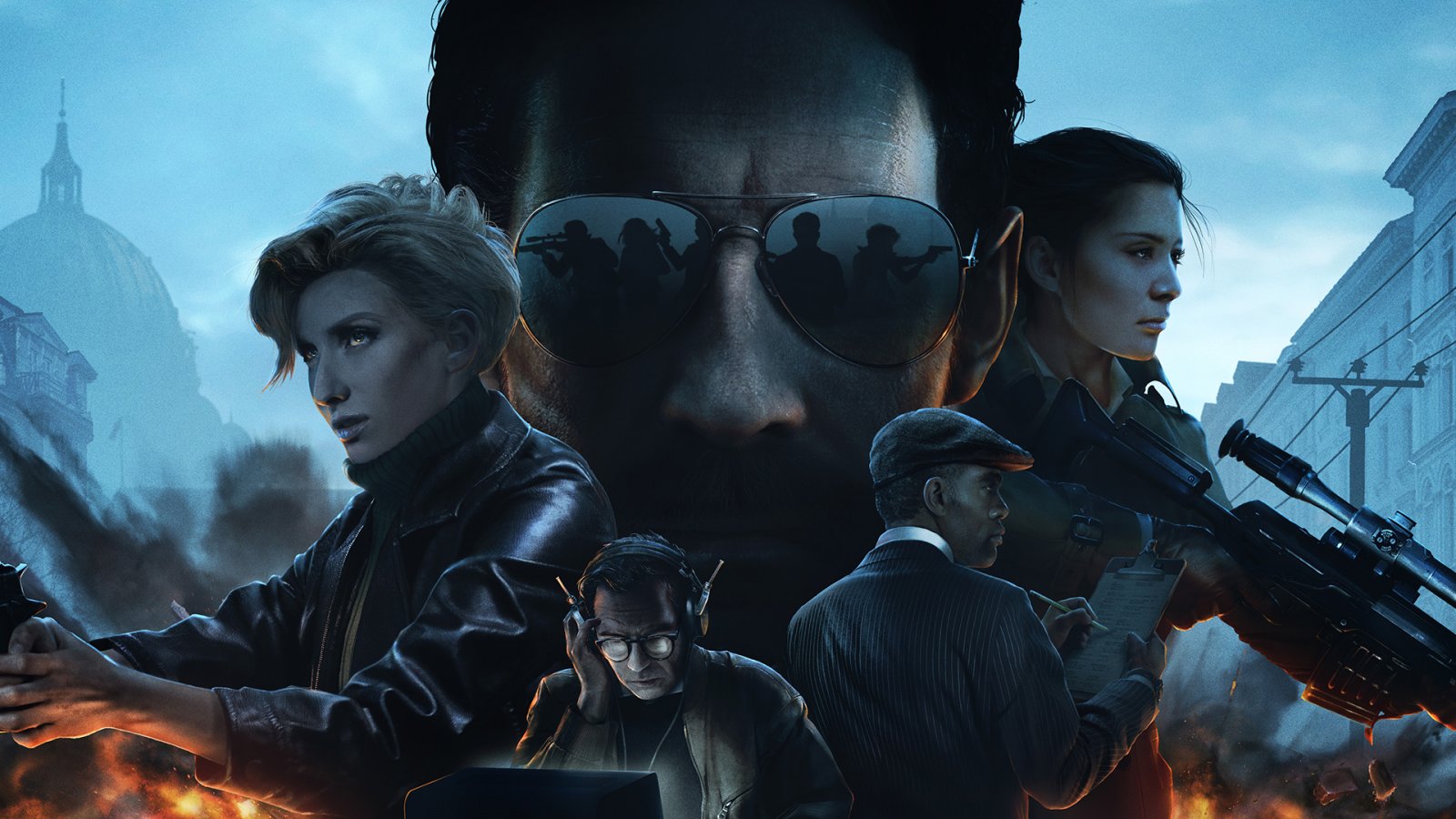Phantom Doctrine is the latest offering from developer CreativeForge Games, the studio behind Hard West, and publisher Good Shepherd Media. You play as a secret agent from the CIA or KGB (and later Mossad) in 1983 that goes rogue after running afoul of a conspiracy within the government. What follows is a tense, globe-spanning spy thriller as you attempt to keep the Cold War from heating up.
Phantom Doctrine plays a lot like other entries within the turn-based tactical genre, with gameplay separated into two specific layers. The macro layer sees you managing a coterie of covert ops agents across the world. From the comfort of your hideout, you can analyze secret documents, run a forging operation for extra cash, buy and sell equipment on the black market, and prepare your agents for operations through various training and chemical enhancements. The tactical layer sees you infiltrating areas and fighting enemies in the streets of major cities worldwide. If you've played XCOM or Hard West, you’ve seen this type of gameplay before.
INFORMATION AGE

Where Phantom Doctrine stands out, however, is in how it sells its setting. In your hideout, you can influence your agents in room MK Ultra, allowing you to brainwash and convert enemy agents to your side. Before tactical missions, you can dispatch agents to perform reconnaissance on an enemy facility to reveal the entire map and allow some of your agents to wear disguises. You really get the feeling that you’re running a secret cabal of spies.
Of special note is the information analysis minigame. In your missions, you have opportunities to photograph secret documents throughout the level and bring them back to your base. You can then comb through these documents, assembling a convoluted wall of paper, corkboard, sticky notes, and twine. The objective is to draw a clear line from a known entity to an unknown one in the center of the board using codewords and codenames. It’s an enthralling process which has you pouring through written notes and hunting out the words you’re looking for among stories about secret ops and the movements of other agents.
Phantom Doctrine also has a prominent stealth mechanic on the tactical layer. Your agents spawn on the map in an Infiltration mode. In this mode, backed by a noir-inspired jazz soundtrack, enemies will not attack. Suspicious actions, such as using a Takedown maneuver, firing an unsuppressed weapon, or being caught in a restricted area, will switch over to the louder, more action-movie inspired Combat mode. In Combat, it quickly becomes a game of how quickly you can extract your agents from the field. Every few turns in Combat, enemy reinforcements will arrive. The objective of any given mission is rarely to kill all the opposing forces. Should you not evacuate in time, you will either be overrun and lose agents or jeopardize the safety of your safehouse.
PERVASIVE UNCERTAINTY
The true strength of Phantom Doctrine is its pervasive sense of uneasiness. The less you know, the more likely you are to make a wrong move and lose an agent, jeopardize your safehouse, or fail a mission. These failures compound into a downwards spiral that can be hard to break out of. Everything in this title is dedicated to making you feel like you need to tread carefully around every corner, lest you blow your cover.
This sense of uncertainty also extends to the story. Rife with betrayals, double agents, and allies in surprising places, the initial story can seem a little obtuse. Story beats can take a while to roll over, forcing you to bide your time on the macro layer longer than you may want, and your enemy, the Beholder Initiative, is so secretive so as to be completely inscrutable in many instances. Granted, this is only in the "Simple" story mode.
Phantom Doctrine boasts a more complex story mode that is locked behind your first playthrough. I would have preferred to jump straight into the more complex story right away rather than having to invest 30 hours into the campaign, only to have to play through again to get the whole picture. The Mossad agent storyline is also locked behind your first playthrough. Although the different agencies only differ in their first chapters, that's still a lot of game to get through in order to experience the full plot.
PARKOUR CONSTRUCTION AGENCY

Up until now, I’ve lauded Phantom Doctrine’s attention to detail when it comes to conveying the experience of being a pulpy secret agent in a spy thriller. Unfortunately, this attention to detail breaks down a bit in the tactical layer. I mentioned before that you get penalized if your agents are spotted doing anything suspicious in front of a passive enemy. This entry strictly adheres to view cones on its guards while in Infiltration mode. Anything your agents do outside of these view cones has no impact on breaking stealth. So, should a guard be standing next to a secret document and you have an agent come up and take a picture of it, the guard won’t care unless he’s looking right at the agent. Even worse, an undisguised agent can walk into or out of a restricted area right in front of a guard, so long as the guard’s view cone doesn’t actually catch them within the area.
This hyper-specificity also extends to what actions are considered suspicious. Much like XCOM, agents traverse terrain through the use of free running. If an agent needs to cross a room with a table in it, they’ll take the most direct route: action-sliding across the table. Agents will also choose to jump out windows and leap from balconies if it means a more direct route. Guards will just stand by and observe passively should they see agents, disguised or no, perform these maneuvers. Maybe it’s just me, but seeing a construction worker run headlong through a window would raise my suspicions about just what this person was doing.
The Verdict: Great
Phantom Doctrine is a very solid turn-based tactics game in the style of CreativeForge’s previous project, Hard West. Despite some silliness in the path-finding and a long grind to get to a clear understanding of the story, fans of the genre will invariably find something to enjoy in what Phantom Doctrine has to offer.


